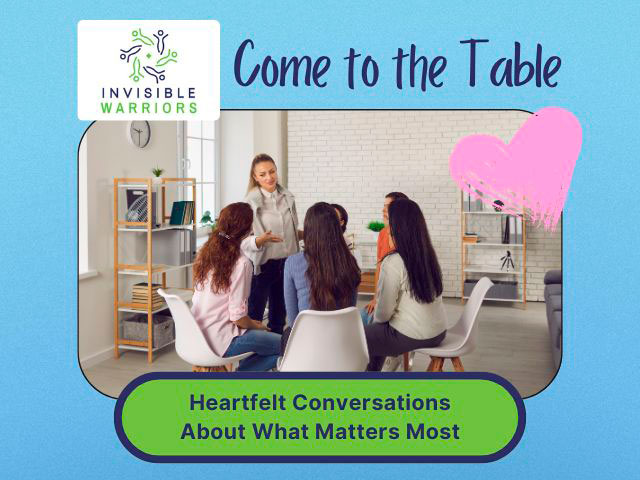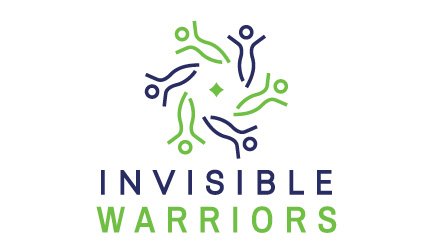The Starbucks Incident
Dr. Keith McNally served as a United States Marine in a combat situation – thus, he is a USMC Combat Veteran. By fortune, he does not have a service-related disability as others who have served in the United States Armed Services. This is not his story.
But this could be your story. Or the story of someone you know.
As reported…
An interesting statistic. According to the United States Census Bureau (source below), those who served (or are currently serving) in the United States Armed Forces since the 9/11/01 terrorist attacks in America have the highest rate of services-related disabilities. This comes to a staggering 1.5 million people.
Although the number of service-related fatalities has declined, the number of service-related injuries has increased. This means there are more veterans with service-related disabilities when comparing pre- and post-9/11.
Additionally, veterans who served since the terrorist attacks have a higher probability of incurring a service-related disability (the article is not clear on the reason for this occurrence).
Comparing the rate of service-related disabilities among Post-9/11 veteran statistics with other war and conflict situations:
- Veterans Post-9/11: 43%
- Veterans of the Gulf War: 27%
- Veterans of the Vietnam Conflict: 16%
In this sense, a veteran is said to have a service-related disability if the individual incurred an injury or traumatic event while in service to his/her country. Although we typically consider this as obvious physical injury such as the loss of a limb or one of the five senses (sight, hearing, smell, touch, and taste), the disability or trauma could be psychological or psychiatric in nature. This includes cases where veterans incur symptoms associated with Post-Traumatic Stress Disorder (PTSD), Anxiety Disorder with Panic Attacks, and the like. Veterans with psychological and psychiatric disabilities are on the rise since the 9/11 terrorist attacks.
Source: https://www.census.gov/library/stories/2020/06/who-are-the-nations-veterans.html
On with the story…
A man was sitting in his vehicle at a local shopping area. His car sat in the second row of the parking lot facing the storefronts. It was mid-morning, Saturday, and he was on his cell phone. A large pickup truck pulled into a parking spot in front of him, to this left. It just so happened to be a spot dedicated to the disabled. The man driving the truck parked and got out of his vehicle.
Soon, the man was approached by another man, equal in height, but probably twice his size, most of that muscle. As the man in the vehicle watched, it was not long before he realized what was going on. He told the person on the other end of the cell phone conversation that he had to go. Exiting his own vehicle, he walked over to the two men by the pickup truck.
Sizing them up, the man who pulled into the parking spot was easily six feet tall. So was his confronter.
“What makes you think you can park in this spot?” the big man said. The man’s voice was angry, even to the point of bullying. It looked as if he was about to put his hands on the driver of the pickup truck when the man from the car arrived on the scene.
“Hello gentlemen,” the third man said. “How is everything this morning?”
“This man is parked illegally and needs to be taught a lesson,” the big man said. “I don’t see any handicap.”
The man from the car pulled out his badge and showed it to the two men. “I’ll take it from here,” the officer said.
The big man, still angry, was not easily persuaded to leave.
Validating Your Story
“I’ll take it from here,” the officer said again. He waited until the big man walked away.
“Thank you, officer,” said the man who drove the pickup truck.
“I am going to have to see your driver’s license and registration,” the officer said.
“What for?” the man said. “I didn’t do anything wrong.”
“Routine,” the officer said. “We have people in the area who carry these rearview mirror signs pretending to be disabled. I just want to make sure.”
“Does this look like I’m pretending?” the man said as he pulled up one of his pant legs. The man was showing the officer his prosthetic leg.
“Your license and registration please,” the officer said. “Just to be sure.”
The man climbed into his truck and dug for his registration in the glove compartment. Then he pulled his license from his wallet.
While the officer checked the validity of the driver’s credentials, the driver of the pickup grabbed his cell phone and made a call. When the officer returned, he asked the man to step out of his vehicle.
“Here you go,” the officer said, handing both the license and registration back. “Your bumper sticker reads Special Forces. Where were you stationed?”
“Fort Bragg, North Carolina,” the driver said.
“My cousin was stationed there,” the officer replied.
“Does everything check out?” the man asked.
“Absolutely,” the officer said. “But now I’m curious. How did it happen?”
“My leg?” the man asked. “That’s a story.”
You Are Not Alone
“I’m sure it is,” the officer said. “But I collect stories. You see, my cousin died. We were told it was a ‘training accident’. It might have been, but we’ll never know. Since then, I have been researching the people who have died in ‘training accidents’ while in service to our country. I have five stories so far. I would like to know your story if you have time.”
“Sure,” the man said. “Why not?”
“Great,” the officer said. “Let me buy you a coffee.”
On With Life
Disabilities are not always obvious. In fact, some are hidden in plain sight. When meeting someone for the first time, or even seeing someone over the course of years, you don’t know what they are dealing with or what they’ve been through. But it’s easy to paint a picture of them just by what you see. Often, that picture is wrong.
Invisible disabilities are just that – invisible. Someone has suffered something, but that something is not common knowledge. As the saying goes, don’t assume, and don’t judge.
And think before you speak.
Thanks for reading!
Want to know more about Invisible Warriors? Sign up for our newsletter to receive regular updates! Or click the button below to schedule a meeting with Founder Nancy Becher. Contact Us HERE or click HERE to make a donation to support us – thank you!










